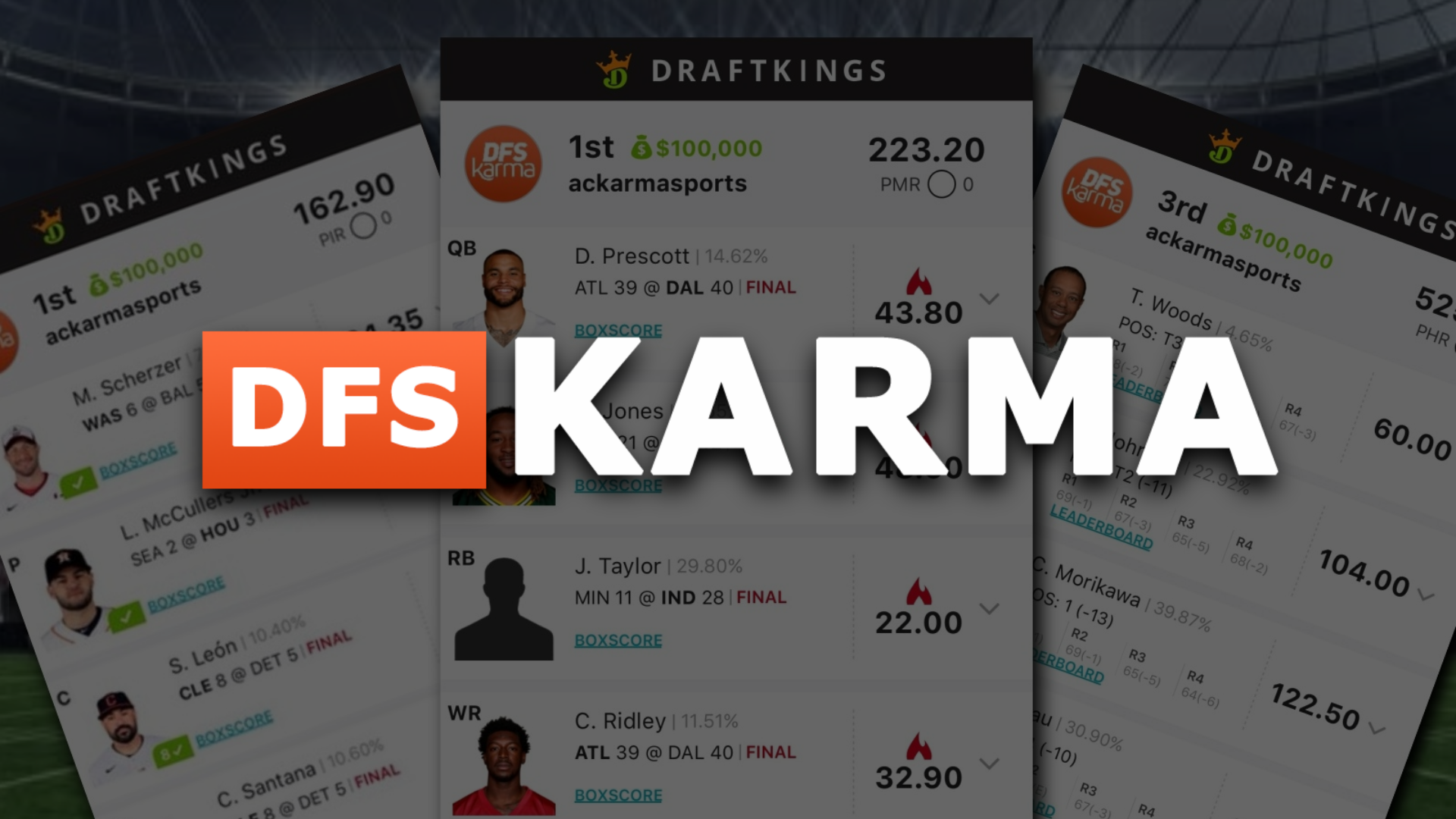
Daily fantasy MMA is a unique sport, specifically in terms of cash game and tournament strategies. You can potentially win cash games with only four winning fighters, whereas you’ll need six winners to take down a GPP. Here are a few things to keep in mind for cash games and tournaments when creating MMA DFS lineups.
Favorites/Underdogs
Favorites are the most important part of building lineups in cash games. DraftKings pricing often allows you to play four favorites with two underdogs, although this isn’t always the case. When playing cash games, you need expensive favorites to not only win, but score well. The best favorites in cash games are active fighters with wide Vegas odds. They generally have solid finishing odds without a high probability of being finished themselves. This gives them the highest floor possible to go along with a reasonable ceiling.
Favorites in tournaments don’t need to be as safe, but they still need to win. In GPPs, you won’t be looking for a fighters floor, but rather you’ll solely be focusing on their ceiling. Favorites that have elite finishing potential, regardless of their chance of being finished, make elite tournament options. Favorites in tournaments should also be active fighters, although their finishing potential is generally more important than their activity.
Underdogs aren’t nearly as important in cash games. Simply put, they can lose without removing you from cashing. Underdogs should be active fighters in fights that are expected to go to decision. Once again, you need a higher floor in cash games. Underdogs that have 15 minutes to work boast a higher floor than fighters that are likely to finish or be finished.
The strategy in tournaments is the exact opposite. Not only do you need all six fighters to win to take down a tournament, but most, if not all, of them need to finish. MMA is a volatile sport, allowing underdogs to win, and more importantly, finish their fights. It’s extremely important to utilize fighters that have the potential to win via stoppage in tournaments.
Stacking
Stacking has become a popular method in cash games in MMA DFS. There are specific ways to stack, though. Essentially, main events or championship fights are the best stacking options. In cash games, you don’t need six winners, so sacrificing one winner for a five round fight adds to the floor of your team. You’re getting two fighters that will see five rounds if this fight goes to decision, giving each fighter five more minutes than every other fight on the card. Stacking also guarantees you a winner.
You don’t always need to stack in cash games, though. If the main event is between two fighters that fight at a slow pace with one likely to finish the other early in the fight, this may not be an ideal fight to stack. This is a bit subjective and depends on the individual matchups on each card.
You should never stack in tournaments. While it raises your floor, it lowers your ceiling. The same way it guarantees your team a winner, it also guarantees your team a loser. It could work on rare occasions, such as the Joanna Jedrzejczyk and Weili Zhang fight, but this is a losing strategy in the long run. It’s of the utmost importance to get six winners in tournaments.
Odds Value
Vegas is one of the best predictors of MMA fights. It is also the most important tool in cash games. DraftKings pricing often comes out on Tuesday, allowing a few days for lines to move prior to lineups locking. They also use a set pricing system that matches fighters pricing against each other. An even fight is set at $8.1K, and each fighter moves $100 in the opposite direction as fighters become bigger favorites.
Odds will move throughout the week, though. On Tuesday, Fighter A could be even with Fighter B, forcing DraftKings to price them at $8.1K. By Saturday, Fighter A could now be a -140 favorite over Fighter B. Fighter A now boasts elite odds value, as he’s priced in an even fight, but is the favorite via Vegas.
This could also happen with larger favorites. For example, a fighter could be a -300 favorite on Tuesday, forcing DraftKings to price them at $9.1K. Their line could move to -700 by Saturday, making them the largest favorite on the card. Once again, this fighter boasts odds value, making them an ideal cash game option.
DraftKings maxes their pricing out in the mid-$9Ks. Regardless of the card, they aren’t likely to make a fighter more expensive than the mid-$9Ks. Depending on the odds of each fighter on the card, one week a fighter at $9.5K could have -175 odds versus -1700 odds on a different card. Obviously, the odds throughout the entire card play a large role in DraftKings pricing, and needs to be taken into account in cash games.
MMA DFS has gotten sharper over the years, allowing fantasy players to take advantage of that in tournaments. While odds value is something to attack in cash games, sometimes it makes sense to avoid it in tournaments. Oftentimes, MMA fighters are referred to as a coin flip if the odds are -135 or closer. Fantasy players generally don’t utilize that rule, though. If a fighter is priced as an underdog but a -130 favorite, they are likely to be one of the highest owned fighters on the slate. In tournaments, you can get an edge on the competition. Using the underdog in this situation still gives your fighter roughly a 50% chance of winning, and they will be owned at a significantly lower percentage.
Fight Matchup
Matchups are extremely important to look at in MMA DFS. Vegas is one of the biggest predictors of the way a fight will play out, giving odds on how each fighter can win the fight. Generally, fighters with higher odds to win via submission will need to grapple, while fighters with higher odds to win via knockout will stay standing. That isn’t always the case, though.
Matchups with high volume fighters are the best to attack. The more fighters are pushing the action, the more fantasy points they can score. While this seems like an obvious part of fights, it goes overlooked a bit, but is one of the more important aspects for fantasy.






